Buy Cellcept : Mycophenolate 500 mg Tablets 50’S Online
$74.40
Brand Name : Cellcept
Composition : Mycophenolate Mofetil
Manufactured by : Roche Holding AG
Strength : 500 mg
Form : Tablets
Packing : Pack of 50 Tablets
Prescription Required *
Cellcept (Mycophenolate Mofetil) is a prescription medication used in the prevention of organ rejection after a kidney, heart, or liver transplant. It contains the active ingredient Mycophenolate Mofetil.
Uses:
Cellcept is used in combination with other medications to prevent organ rejection after a transplant surgery. It works by suppressing the body’s immune system, which lowers the risk of the transplant being rejected by the recipient’s body.
HOW TO USE:
Cellcept tablets should be taken orally, with or without food, as directed by the doctor. Patients should never exceed the recommended dosage. The dosage and duration of treatment will be determined by the doctor based on the patient’s medical history and response to treatment.
Storage Conditions:
Cellcept tablets should be stored at room temperature, between 20°C to 25°C (68°F to 77°F). Keep it away from direct sunlight, heat, and moisture. Ensure that the medication is kept out of reach of children and pets.
Mechanism of action:
Cellcept contains Mycophenolate Mofetil, which is an immunosuppressant medication that works by inhibiting the activity of an enzyme called inosine monophosphate dehydrogenase. This enzyme is involved in the production of DNA, which is necessary for the growth and reproduction of cells. By inhibiting this enzyme, Cellcept suppresses the immune system’s response to a transplanted organ, thus preventing rejection.
Precautions:
– Cellcept should only be used under medical supervision and by individuals who have undergone a transplant surgery.
– Patients with liver or kidney problems, high blood pressure, or other medical conditions should inform their doctor before using Cellcept, as these conditions may affect the safety or effectiveness of the medication.
– Cellcept may increase the risk of infection, and patients should avoid contact with others who are sick or have been recently vaccinated.
Contraindications:
Cellcept is contraindicated for patients who:
– Are allergic to Mycophenolate Mofetil or any of its ingredients
– Have an infection that has not been treated
– Are pregnant or breastfeeding
Drug Interactions:
Cellcept may interact with other medications and affect their effectiveness or increase the risk of side effects. Patients should inform their doctor if they are taking any prescription or over-the-counter medications, vitamins, or herbal supplements.
Overdose:
In the event of an overdose, patients should seek immediate medical attention. Symptoms of an overdose may include diarrhea, nausea, vomiting, and stomach pain.
Side Effects:
Cellcept may cause side effects, which may vary in severity and depend on the dosage and duration of treatment. Common side effects include:
– Diarrhea
– Nausea
– Vomiting
– Headache
– Stomach pain
Less common but serious side effects may include:
– Infections
– Liver problems
– Blood disorders
– Skin reactions
Patients should inform their doctor immediately if they experience any serious or persistent side effects.
Be the first to review “Buy Cellcept : Mycophenolate 500 mg Tablets 50’S Online” Cancel reply
Related products
Immunosuppressive Drugs
Buy Pangraf : Tacrolimus 0.5 mg Capsules 60’S Online For Sale
Immunosuppressive Drugs
Immunosuppressive Drugs
Buy Sandimmun Neoral : Cyclosporine 100 mg Capsules 50’S Online
Immunosuppressive Drugs
Immunosuppressive Drugs
Buy Sandimmun Neoral : Cyclosporine 50 mg Capsules 50’S Online
Immunosuppressive Drugs
Immunosuppressive Drugs


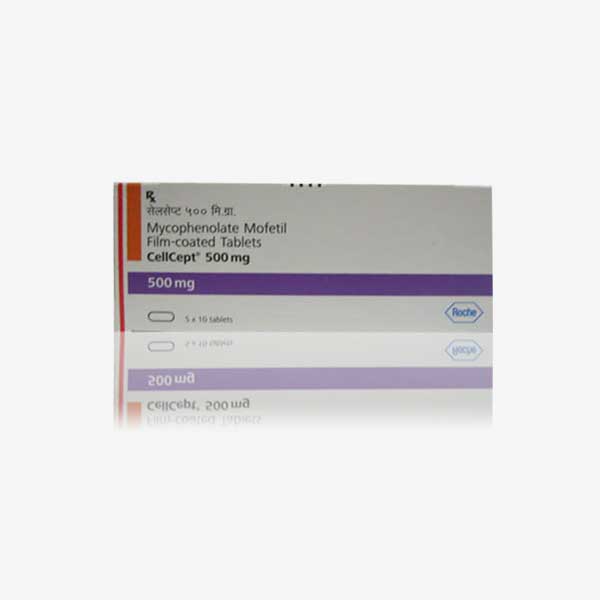
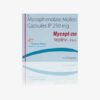

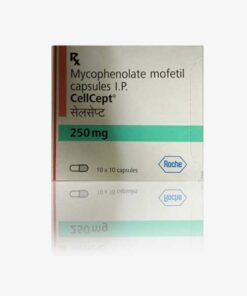
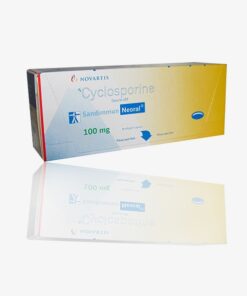
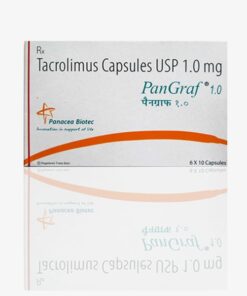
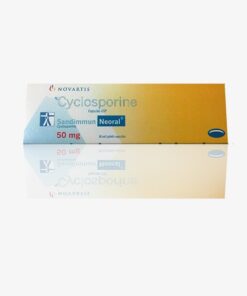
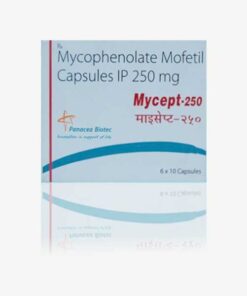
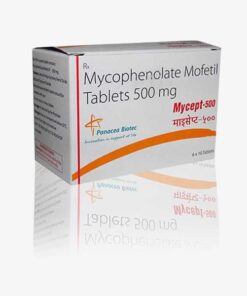
Reviews
There are no reviews yet.